What have world championship medallists Peter Sagan, Michael Matthews and Ramūnas Navardauskas got in common? Aside from the obvious, they’re all forced to pay a share of their prize money to fund the CPA rider union. Only they’re second class citizens when it comes to getting their voice heard.
Last week’s piece on the clumsy workings of the CPA rider union pointed out it was funded on a compulsory basis thanks to a levy on prize funds. The good news is that this ensures stable finances for a rider union, the bad news is that all riders are forced to pay but it turns out a huge number of pros don’t have a proper say because the CPA structure has serious geographical limits:
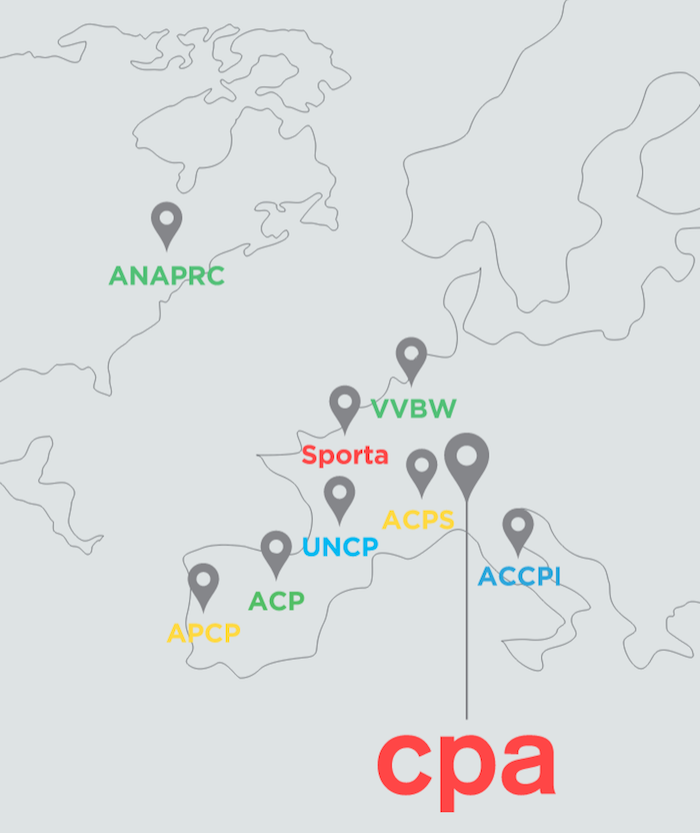
The illustration above comes from the CPA’s website and shows the various national federations that sit under the umbrella of the CPA. It’s very Euro with Portugal, Spain, France, Switzerland, Italy, Belgium and the Netherlands along with the US union the ANAPRC… and that’s it. Britain and Ireland might be missing from the map completely but so are unions from many countries that produce many pros.
Here’s the World Tour pro peloton for 2015 by nation, a total of 475 riders from 41 nations. The CPA represents all pros and not just the World Tour rides but let’s use the World Tour for illustration. You can see the main nations that supply riders to the pro ranks like France, Italy, Belgium, the Netherlands and Spain, the traditional homes of pro cycling for over a century. But times have changed and now there’s Australia with 28 riders, Russia with 19, Germany on 18 and Colombia on 16, Britain on 13 and so on. Indeed a total of 40% of the riders in the World Tour are outside of the CPA’s coverage.
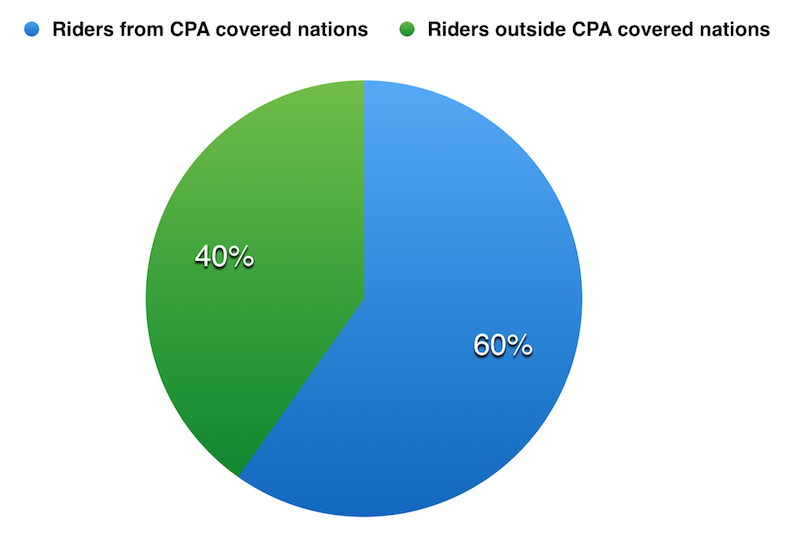
For those riders with national representation there’s the usual formal democratic process of voting at annual general meetings of their national union and being able to mandate delegates to work on their behalf, plus valuable informal channels like chats with riders and so on to establish policy. But for those without a local union it means hundreds of riders are having to pay for a union which doesn’t represent them as well.
Under the current rules delegates to the CPA meetings cast votes proportional to their member base meaning across the World Tour and Pro Conti ranks they can exercise block votes of over 100 votes each. By contrast pro riders from countries without a union can have their say if they attend the meeting in person but this is a two class system: if you’re born in a traditional cycling country you get a union, if you’re not then you have to pay but don’t get a representative. Taxation without representation.
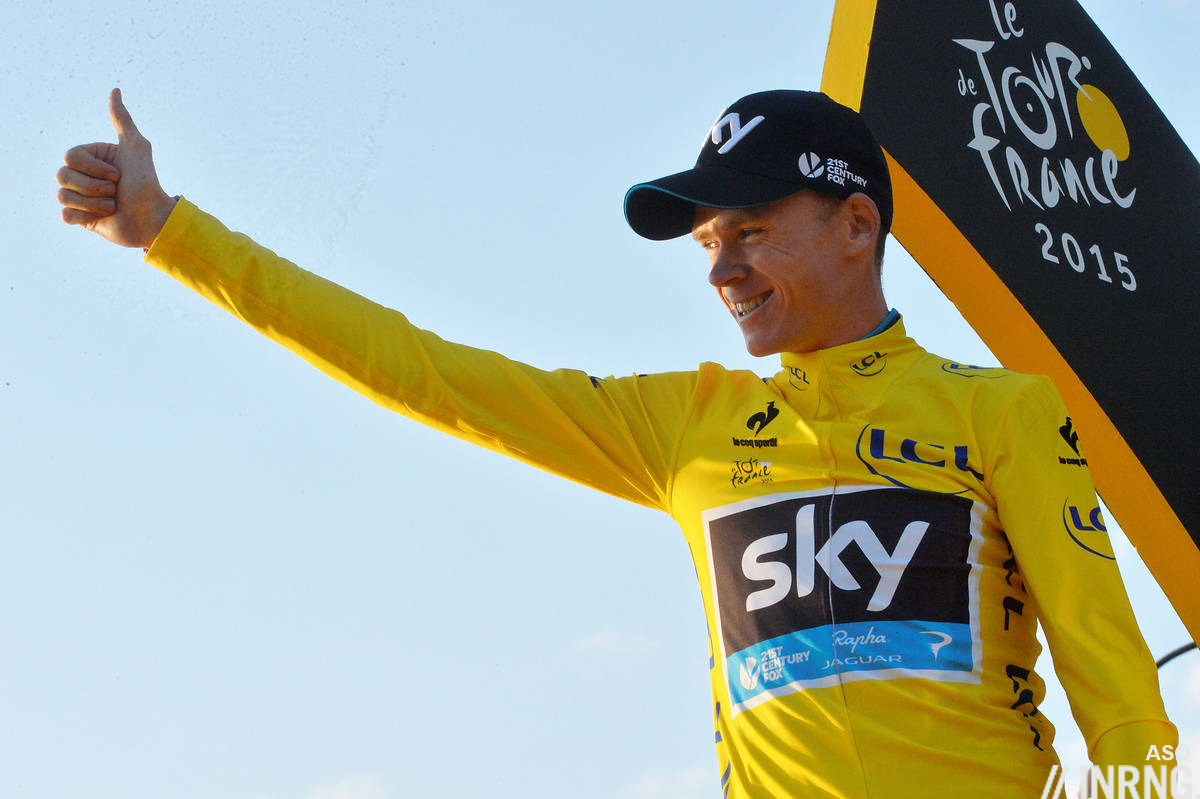
The Froome Paradox: Chris Froome won the Tour de France and collected cycling’s biggest prize pot. Obviously prize money isn’t a big deal in cycling but the yellow jersey in Paris is worth a lot to the winner and his team with €450,000 going to the first placed rider. As explained last week 7% of this is taken to fund the CPA but for races in France, Spain and Italy an additional 3% is taken off the prize money and used to fund the national rider union. So this means Froome pays €45,000 in union dues on the Tour win but doesn’t have a union rep while his money bolsters French riders and the CPA in general.
The Veikkanen Conundrum: smaller nations are in a bind. Currently it seems each nation must have its own rider union and then affiliate to the CPA but you can imagine the problems here: reduced to the absurd a rider from a small nation cannot hope for any support, imagine a rider union in Finland with one union rep and a secretary working on behalf of Jussi Veikkanen.
What to do?
It’s a classic case of agency and power. The existing CPA set-up sees the large federations like France’s UNCP and Italy’s ACCPI wielding large power in the CPA. This works for large enough nations that supply a lot of riders. Riders in large countries like Britain, Germany and Russia could and should organise to mandate a union to act on their behalf; perhaps funding this via an extra levy on prize money on races in their country or find another solution.
For smaller countries an alternative is to have transnational unions, for example a Scandinavian rider union to cover all the region, perhaps even to have a Baltic union with Lithuania, Latvia and Estonia added too. But this isn’t about geography, a Scandinavian or Baltic pro cyclist has interests aligned with Canadian, Kazakh and Slovak riders too rather than national lines. But the CPA doesn’t allow this.
Another remedy could be technology. If riders from small nations want a say but attending the CPA’s meetings is too expensive or time-consuming then they could vote online or by email so that their voices can be heard although this only solves the attendance issue, it doesn’t mandate someone to speak on behalf of the riders all year round.
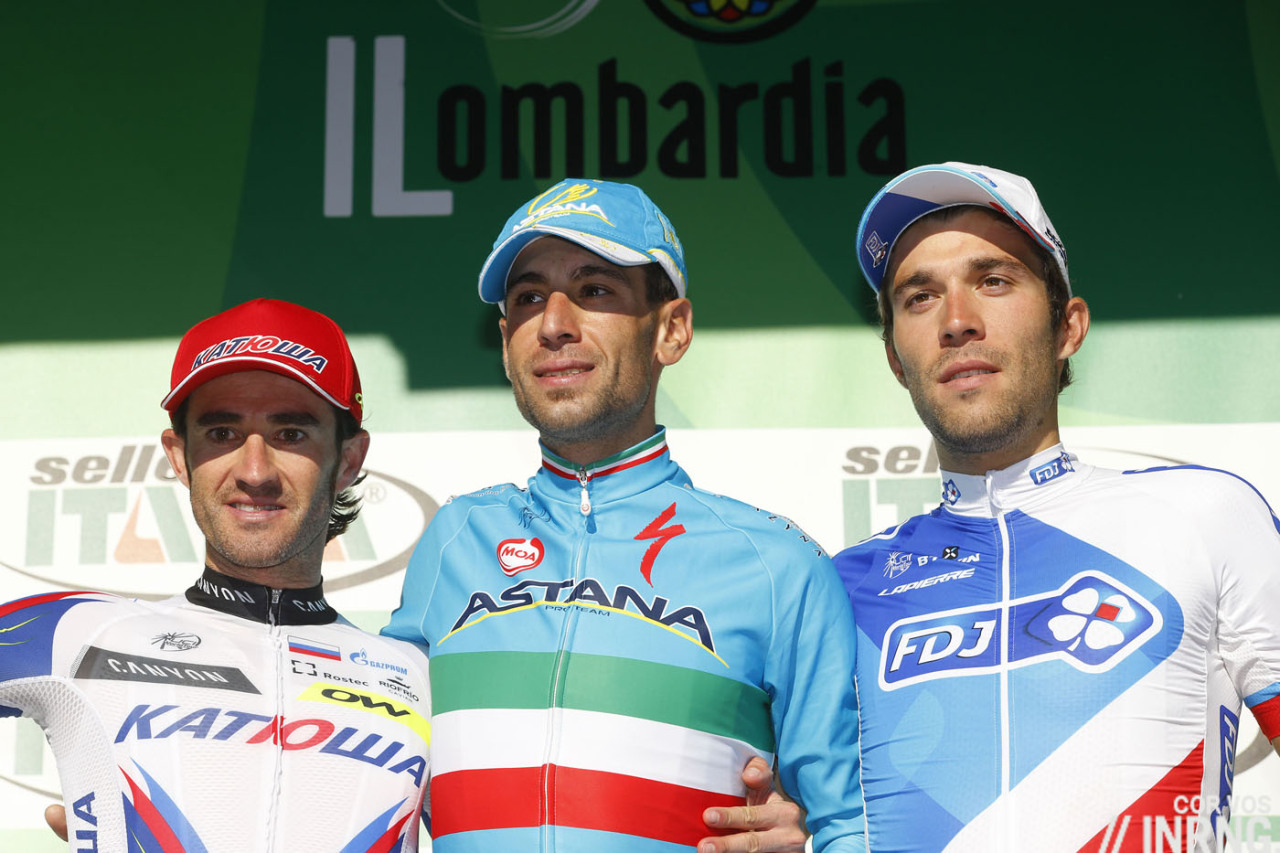
Summary
The CPA is the recognised rider union and funded by all pros. It does speak on behalf of everyone but its structure means it’s not representing the whole peloton in an equal way. While the UCI talks about encouraging “globalisation” the peloton is already full of riders from all four corners of the world and too many of them don’t have a local union. Some riders need to work out ways to resolve this so the CPA can welcome new unions from countries with large contingents but the CPA probably needs to change its ways too to let international unions representing several nations in one go.

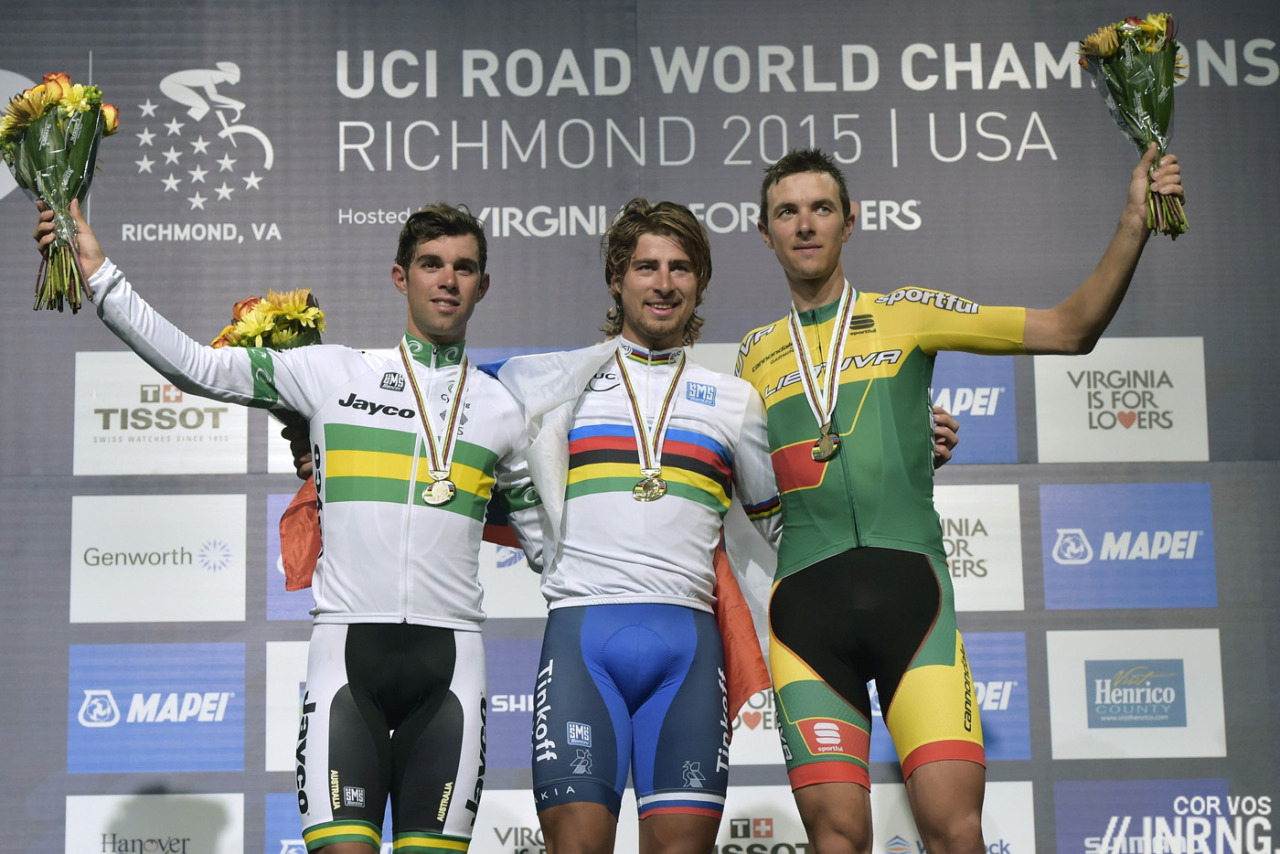

You´re right. At least CPA encourages the other countries to build a union, esp. the german speaking (Germany, Austria, Liechtenstein, Luxembourg?) and australien riders.
http://www.cpacycling.com/newsdett_new.asp?idelemento=DOCS48927260448
Why would/should the needs/views of a pro rider not from one of the traditional cycling countries be any different from those who are? I have a tough time understanding how you determine these riders are unrepresented, especially when it seems setting up an organization is encouraged.
Because if you’re from, say, Finland or any small country then the costs of setting up a union are large and fall on you. You’ve got better things to do so it doesn’t happen but in the meantime you’re paying money for others to have direct representation.
I guess that depends on what you define as “direct representation” when this particular union doesn’t do much of anything anyway for their members, no matter what country is written on their license.
If this particular union doesn’t do much of anything, then it seems that smaller countries should be more keen to get involved—they would be more likely to be able to influence the union and perhaps get something done, despite their small size.
A very fair analysis of the iniquitous I think.
Is mandatory funding from prize money not, in effect, ‘closed shop’ de facto trade union membership of the CPA?
Closed Shop trade union activity was made illegal in Britain during 1990’s trade union reforms.
No, in fact this” trade union” CPA, isn´t a real trade union. CPA is in fact paid by the UCI according UCI-rules. So: CPA is a not a trade union, but a rider representation according UCI-rules . They are in fact not independent from the UCI.
On the other hand: It´s not required to be member of the CPA and pay the membership fee to the CPA before turning pro (closed shop). It´s simply that a pro has the membership rights, because he is pro and he pay nothing – only that the UCI tells the organizers to pay a certain quote of the prizes to the CPA (strange enough).
But to be fair: Fe. Bernhard Eisel and Jens Voigt were representatives of the CPA in UCI-commissions without being member of a national federation of the CPA. Wich means that the membership in a national federation of the CPA isn´t required to act as an CPA-member.
It’s a weird set-up. The group was created by the governing body of the sport to “represent” the riders and give the illusion that the riders can independently negotiate for their own rights. However, this body is neither independent from the UCI, nor does it negotiate for the riders. The most visible person on the board is in fact a rider who’s somewhat occupied with the job of riding and racing, rather than negotiating, strategizing, etc.
The riders, and their agents, need to set up their own union, refuse to pay into the CPA, and appoint a lawyer, or other negotiator, to lead it on their behalf.
In fact they DO negotiate for the riders – http://www.uci.ch/mm/Document/News/Rulesandregulation/16/26/52/JointAgreements2013-ENG_English.pdf – even if they are not an independent trade union. To me it seems a bit like german labour law as the churches are practising: negotiations without trade unions and without strikes. Somewhat between middle age and modern capitalism.
They don’t really negotiate for the riders though. The item you sent me is, once again, a rule set-up by the UCI, NOT the riders “union” themselves. This body has no real independence or power.
Name one actual instance where the riders’ union (for lack of a better word) has actually negotiated on behalf of the riders for something important? Important being working conditions, and more importantly salaries, or the conditions that lead to higher salaries. Where was the CPA when the UCI and other bodies were discussing the reforms that would DECREASE the size of World Tour Teams from 30-riders down to 25 (I think it’s 25..)?
The CPA sat back and watched the World Tour job opportunities decrease by over 10% without any discussion, argument, etc. A real union would not have let that happen without a fight.
Either way, there is a huge difference between this and a trade union because this “union” doesn’t actually do anything. It doesn’t matter if you have a rule, or a by-law, etc. if no one actually has the ability to do anything with it.
I can have a rule that “I’m only going to work for people who pay me $1,000,000 per hour”. But, that’s ridiculous. This rule is ridiculous because the CPA DOES NOT NEGOTIATE for the riders. They just don’t. Cyclists have no collective bargaining agreement, a really low minimum wage, and very little job security.
I read a bit of the agreement – thanks for posting it. There’s one clause that made me laugh. It said that each rider is entitled to 35-days of vacation per year. If you’re a rider who’s one of your teams’ least talented members, are you really going to take 35-days off your bike? NO chance! Cyclists for the most part work on 1-year contracts, so if your name isn’t Chris Froome, you’re riding/working most days of the year.
It’s easy to have agreements and documents and by-laws saying whatever you want, but what do they actually have the power to do? That’s what is important.
Well, you might compare a pro cyclist’s vacation with that of an orchestral musician: they both probably have to keep practising – and both wil probably *want* to practise – during their yearly vacation, but they don’t have to show up at work, so to speak.
Vacation thus means a period or periods when their are no rehearsals, concerts, workshops, tours etc schedules. – although as a husband of violist I’m fully aware that it usually means rehearsals, concerts, workshops, tours etc, albeit not with the “team” the musician “plays” for…
The “closed shop” idea you raise seems to relate to having to belong to a union to get a job, ie the union has a strong influence over the working practices… which isn’t the case in the World Tour and beyond.
Exactly, and therefore this isn’t a useful union for the riders. They don’t do anything useful except give the appearance that the riders’ rights are being looked after.
Very interesting.
Thanks all.
The CPA did prompt the Extreme Weather Protocol.
And, whilst there is universal taxation on prize money without universal representation, at least it can be said that the rich(er) are paying for the less so (given that most prize money may be won by the richer riders on the richer teams *in general*).
Far from ideal and equitable but a small redeeming feature perhaps.
“The item you sent me is, once again, a rule set-up by the UCI, NOT the riders ‘union’ themselves.” Nope. The Joint Agrrements are a contract between CPA and the team owners, AIGCP. This agrrement is shown on the UCI-website, but it’s no UCI-Rule. Just read the source.
The Joint Agreemnets are implemented in the rules for road racing, 2.15.110, 2.15.111, 2.15.112, 2.15.112 bis, 2.15.119, 2.15.139, 2.16.031 etc.pp. But it’s no rule of the UCI. The implimentaion of contracts between trade unions an employers in state law is nothing unusual. That’s makes no diffrence between a trade union and the CPA.
Rik VII – sorry, I responded above…. just look for the latest really long-winded response.
The clumsy workings seem to be the much bigger problem, which may be, in part, why countries like Russia or Germany don’t bother with a union. The Columbians get the shortest end of the not to effective stick. Off topic but, the pro peloton by nation is a great bit of information. Pros per capita and per GDP are my thoughts for no reason.
I nominate Inrng for the next UCI head. Inrng understands the real issues in cycling.
Perhaps we should start by starting a pirate union for pro riders and we will insist INRNG
be our CEO. Then we take over the cycling world.
Although I can see his next post ” if nominated I will not run. If elected I will not serve”
haha, yeah and then he doesn’t let either of us post comments…
I nominate Sepp Blatter, now that he’s looking for a new job anyway. Surely he will make order of this mess, AND turn a tidy profit for all.
Well, that may tie in rather well with this:
http://cyclingtips.com.au/2015/12/report-chinas-richest-man-jianlin-may-try-to-purchase-the-three-grand-tours/
Wanda Sports head who owns Ironman (not that we give Trihards the time of day here) is considering purchasing the Grand Tours, apparently. President and CEO of the firm is Blatter’s nephew.
It’s this kind of thing that makes me a fan of ASO – the alternatives are all so much worse. I’m not saying they’re perfect, but as long as ASO hold the trump card the various people who would ruin the sport in order to make more cash out of it will hopefully be kept at bay.
Can we get one thing straight in all of this mess? “WorldTour” is one word, according to the UCI:
http://www.uci.ch/road/ucievents/2015-road-uci-worldtour/360432015/
Great post. Vintage even. As so often seems to be the case in this sport, it turns out that something which could be a genuine force for good is underfunded, constructed in a bizarre way, lacking a real mandate and floundering.
We can argue about amending the calendar, improving the spectacle etc etc however these are difficult questions and nobody seems to have the power to change things for the better. Fixing the CPA looks far simpler and more achievable for the UCI and they could strengthen the CPA without weakening their own position.
Thanks for the information about the CPA. The suggestions for broadening the membership make sense. However, if most or all of the union’s funding comes from prize money it is open to influence from the larger race organisers who could put a dent in the CPA’s funding if they decided to reduce prize money.
A traditional (at least for English-speaking countries) model of funding unions from fees paid by members might provide more incentive for the union to act in the interests of members and for members to have an interest in what happens with the fees they pay directly.
I wonder if somebody like Quintana or Uran would really benefit from being represented by a Colombian union. They ride for European teams, in European races, and have very different needs than domestic Colombian pros. I’d think it would make much more sense to be a member of the union in the country of your employer, not your nationality.
I’d agree with that which is why, say, an American union could represent everyone from N and S America, or if not riders could be free to join a union in, say, Spain if they happen to live there. It would create competition among the unions so the rider joins the one that looks suitable.